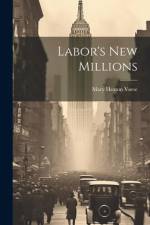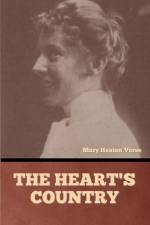- In Large Print for Easy Reading
av Mary Heaton Vorse
315,-
This is a large print edition This includes a larger point size for characters plus the use of non-serif fonts, increased spacing and improved contrast. Large Print can be appreciated by all audiences because it reduces eye strain. Mary Heaton Vorse or Mary Heaton Vorse O'Brien (October 11, 1874 - 1966) was a U.S. suffragette, journalist, labor activist, theatre patron, and feminist. She became one of the most popular writers of women's fiction in the U.S. As a labor journalist and war correspondent, she traveled to Lenin's Moscow and Hitler's Germany. She was outspokenly active in peace and social justice causes, such as women's suffrage, civil rights, pacifism (specifically including opposition to World War I), socialism, child labor, infant mortality, labor disputes, and affordable housing. She was instrumental in forming the Women's Peace Party in January 1915 in Washington, D.C. Newspapers and journals she wrote for included the New York Post, New York World, McCall's, Harper's Weekly, Atlantic Monthly, The Masses, New Masses, New Republic, and McClure's Magazine, as well as various news services. She participated in and reported on the Lawrence textile strike, the steel strike of 1919, the textile workers strike of 1934, and coal strikes in Harlan County, Kentucky. She was also a popular novelist for several decades and published poetry as well. Her writing helped her raise three children without a husband. "I love my golden wings and I want to fly right into the sun until they are all draggled and battered, ' wrote Vorse in 1896. A rebel at a young age, she fled her wealthy New England family and settled in Greenwich Village in the early 1900s. Vorse was intimately involved with the political, cultural, and feminist leaders of the Left. Her commitment to feminism led to her presence at women's rallies in Europe and America; her unique contribution to the journalism of her time was to give consistent attention to the special concerns of women and their role in the labor movement.








